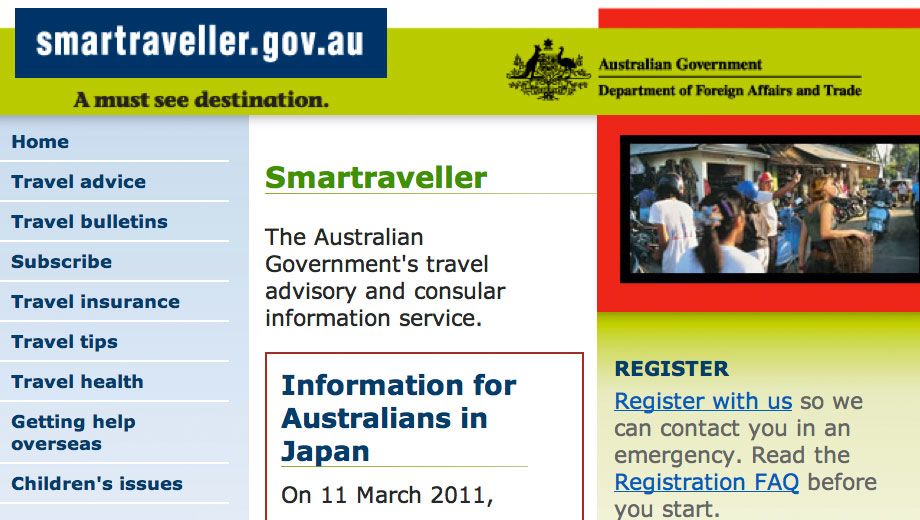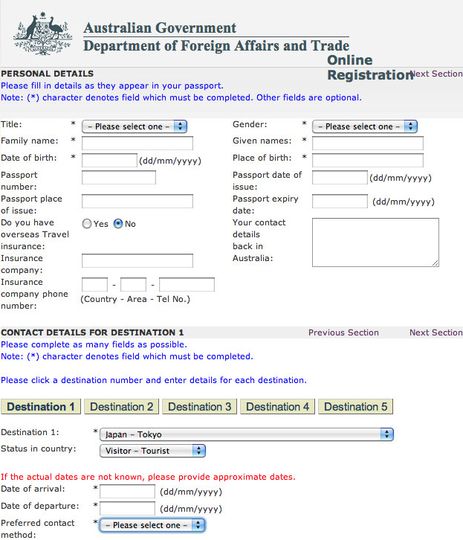Stay safe in emergencies abroad: how to register with DFAT's Smartraveller

When disaster strikes abroad -- whether it's an earthquake in Christchurch, an earthquake-tsunami and resulting nuclear crisis in Japan, a terrorist attack in London or New York -- the Australian government springs into action to locate its citizens.
Leading the effort is DFAT, the Department of Foreign Affairs and Trade.
Its staff in embassies, High Commissions, consulates and consulates-general across the world field calls from affected Australians abroad and worried colleagues, families and friends back home.
But emergencies don't have to be on disaster scale for DFAT's help to be useful.
An embassy or consulate can help if you're robbed, mugged, injured or ill abroad, or if there's some trouble with the local law.
They can also help your family get in touch with you urgently if there's a problem back home. The only catch is that you have to register with them.
DFAT says:
All Australians travelling overseas, whether for tourism or business or for short or long stays, are encouraged to register with the Department of Foreign Affairs and Trade before travel. The registration information provided by you will help us to find you in an emergency - whether it is a natural disaster, civil disturbance or a family emergency.
To register Australians travelling abroad, DFAT uses Smartraveller, a database that lets Australians register their details online. Here's what the registration page looks like:
It may seem like information overload at first -- it took up a full screen when we tested it -- but it only actually requires four sets of information:
- title, name, gender, date & place of birth
- destination country and region
- date of arrival and departure
- preferred contact method if needed (you can opt out of this)
You don't even need your passport number. Even if you're a slow typist, it will only take a minute to tell them where you're going.
Everything else is optional, including where you're staying, what you're doing, contact numbers, flight details, and so on.
Obviously, the more information you give Smartraveller, the more information DFAT staff have if they need to find you in an emergency.
If you prefer, you can avoid web registration entirely, and leave all the details in a voicemail on 1300 555 135 (option 3).
Top tip: note down the location and telephone number of the nearest Australian Consulate, Embassy or High Commission to your destination. In an emergency, DFAT is a useful source of information.

Hi Guest, join in the discussion on Stay safe in emergencies abroad: how to register with DFAT's Smartraveller